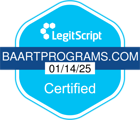Opioids come in many forms with different administration methods, potencies and appearances. Some opioids have higher rates of misuse due to their availability or effects. This guide will provide an overview of the most common opioids for misuse and how to get help if you have an opioid addiction.
Commonly Misused Prescription Opioids
Many opioid addictions involve prescription drugs that were originally provided for a legitimate use, but the individual became addicted over time. In some cases, a patient becomes addicted when they do not take their medication as directed. Other addictions begin with a prescription meant for a friend or loved one. Four commonly misused prescription opioids include:
Oxycodone (OxyContin®)
Doctors prescribe oxycodone to relieve moderate to severe pain. It comes in multiple forms, including a liquid solution, a capsule and a tablet. The extended-release tablet features the brand name OxyContin®.
Hydrocodone (Vicodin®)
As a potent prescription opioid, hydrocodone only finds use in treatment for severe pain. A branded version of hydrocodone called Vicodin® also contains the pain reliever acetaminophen.
Codeine
Since codeine reduces coughing, some prescription cough medicines contain it to relieve symptoms. It also treats mild to moderate pain.
Morphine
Morphine treats moderate to severe pain that does not respond to other pain medications. Illicit drug manufacturers use morphine to create the illicit drug heroin.
Most Common Non-Prescription Opioids for Misuse
Non-prescription opioid misuse can happen as a result of prescription opioid misuse or on its own. Prescription opioids are often expensive and when an individual can no longer afford them through their medical providers or on the street, they may look to inexpensive, illicit street opioids as an alternative. Most illicit opioids have no legitimate medical application, but some do in extreme cases during surgery, to alleviate cancer pain or in hospice. Two types of common non-prescription opioids include:
Heroin
Heroin is an illegal drug with no medical application, however it is much less expensive than many prescription opioids and often becomes the drug of choice for individuals who need to continue using opioids to keep from experiencing withdrawal symptoms. Illicit manufacturers create heroin from morphine by changing its form. It comes in the form of a white powder, brown powder or black paste.
Fentanyl
While fentanyl is a prescription drug, doctors only use it in situations that require very strong pain relief. It mostly finds use in critical or post-operative care, but it can also relieve pain in patients with very severe chronic pain. Fentanyl has 50 to 100 times the potency of morphine, making it an incredibly dangerous opioid for misuse.
How to Get Help if You Have an Opioid Addiction
Medical professionals can provide treatment if you have an opioid use disorder. If you think you need help, take these steps to start recovery:
- Talk to your doctor: If you feel comfortable with your current doctor, try talking to them about your potential addiction. For some patients, reaching out to someone familiar makes it easier to begin recovery.
- Contact an opioid addiction treatment center: Opioid addiction clinics offer a variety of treatments that reduce your withdrawal symptoms and address your mental health. Contact a treatment center near you to learn more about their services or schedule an appointment.
- Learn more about opioid addiction treatment: During any phase of recovery, you can learn more about opioid addiction treatment through Internet research. Try websites from the government, universities and reputable health providers.
Contact BAART Programs for Assistance
If you have an opioid addiction, BAART Programs or one of our partners can help you. Learn more about our opioid use disorder treatments by contacting our staff today.



